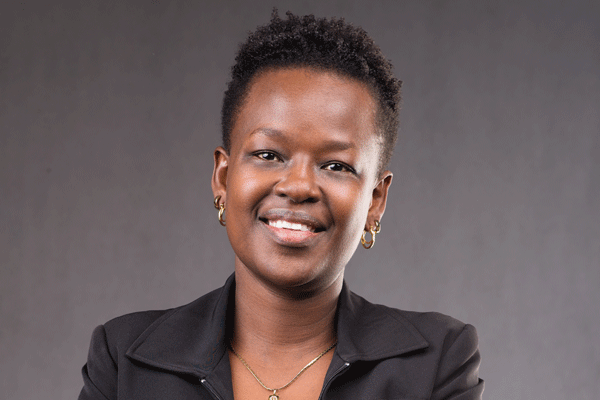Why you should guide your children and help them navigate treacherous online terrain

Evelyn Makena and Chebet Korir
It is no longer strange to see children as young as three years old operate smartphones with admirable dexterity.
Often it starts with playing video games and watching cartoons, and by the time they are preteens, they know how to navigate social media platforms.
Now experts have warned parents to be vigilant about their children’s Internet use amid concerns of cyber-bullying and addiction.
As the recent video of a 12-year-old boy from Consolata School, Nairobi venting about being bullied and making threats to schoolmates’ life emerged, the role of social media and child online safety has come under serious scrutiny.
“How to assist children navigate social media is a real concern. The Internet has advantages and disadvantages.
It is important for parents to orient their children with both sides before they can allow them to venture online,” says Susan Kahoma, counselling psychologist at Amani Counselling Centre.
Shalom Munyiri, a parenting coach, says the decision on whether to allow children to have Internet access differs from family to family and with every child.
“The decision on whether to have the child online should not only be based on their age, but on whether they are in a position to use the tools responsibly,” she says.
This involves teaching them about what information to and not to share.
So, how are parents coping? Esther Wanjiru has ‘tech curfew’ for her 11-year-old son.
“I monitor the programmes he watches on TV. I have not bought him a smartphone, so he uses mine. With that, it is easy to keep track of what he does. He is on social media, but I’m the one who gives him a nod on what to post,” Wanjiru says.
Rama Olouch, a father of three says: “I think the right question to ask is if parents know what their kids are going through. These children need to be heard. Are the parents there for their kids?”
Oluoch says he bonds with his children through outdoor activities.
“Don’t be a parent all the time. Sometimes, all they need is a friend and that’s what I try to be,” he adds.
In the viral video of Consolata School 12-year-old, the use of vulgar language was difficult to miss.
Experts say it could reflect the kind of environment or content the child is exposed to.
While venting about being bullied by his schoolmates over being referred to as gay, the boy uses vulgar language popularly used in American pop culture. This, experts say, points to deeper psychological issues.
“The rant seems like a call for help. It seems like a boy seeking attention. He may have approached other people with his problems but they failed him,” says Kahoma.
Nonetheless, children on social media need to know what could be at stake in case they use the Internet for cyber-bullying or air private matters.
“You need to help them understand that making a mistake online makes it a million times worse because it’s broadcast to very many people,” says Munyiri.
Besides addressing the concern of what the boy said online, the underlying issues that may have led him to vent also needs to be looked into.
“That involves keenly looking at the kind of music or movies he has been watching or the kind of language people around him are using and trying to wean him off that,” Kahoma adds.
Social media platforms
To ensure safety and to monitor the child’s activities while online, Munyiri recommends a technique she refers to as “building a village around”.
This technique involves introducing a person a child considers to be “cool” to act as a bridge between the child and the parents.
“It’s someone the child can speak to without sounding like their parent. This person with whom a child is free with gets to monitor what they do online and is available to talk about issues before escalating them on social media platforms,” adds Munyiri.
In the meantime, experts agree that the boy requires counselling to fully understand the source of his anger, but to change his language, his caregivers will need to help him get rid of the negative influences.
Esther Mbau, a family psychiatrist, insists that the public should not be quick to judge the boy.
“He is growing up and we should be more empathetic. It is not too late to mould the child’s behaviour and have mother-son counselling,” she says.
She adds that children might be crying for help or attention, acting out or bullied at home.
“Children may be mentally disturbed or disconnected to the parent. Parents need to spend quality time with the kids and show them that they are a priority,” she advises, saying that discipline is a major issue in this generation and should be instilled.
“It should be part of a routine and children should distinguish what is right and wrong,” Mbau says.












